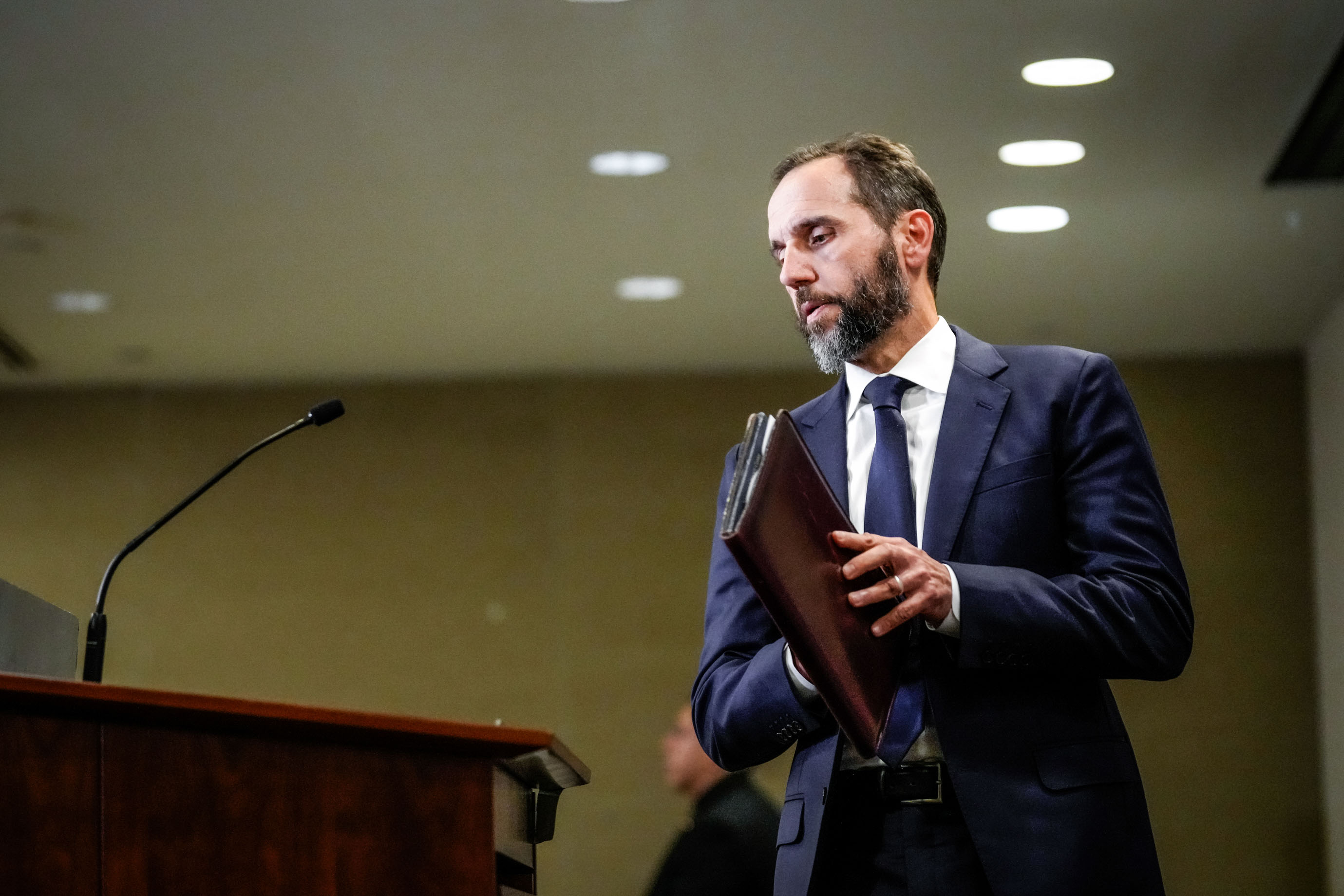U.S. District Judge Aileen Cannon on Jan. 21 blocked a redacted release of the second volume of former special counsel Jack Smith’s report on President Donald Trump’s classified documents case to four members of Congress.
Cannon sided with an emergency motion brought forward by Trump’s co-defendants, Waltine Nauta and Carlos De Oliveira, to prevent the report from being released until all matters concerning the criminal case were concluded, stating the release “presents a substantial and unacceptable risk of prejudice to the defendants.”
Cannon previously dismissed the case, ruling Smith’s appointment a violation of the appointments clause of the U.S. Constitution, and the indictment against Trump was dismissed after his election victory. However, her ruling was quickly appealed and is still waiting for an appellate decision concerning Nauta and De Oliveira.
The appeal means that the case is still ongoing, and the defendants argued on Jan. 17 that the release of information concerning their case, much of which has not been made public, could cause harm and prejudice.
The Department of Justice (DOJ) told Cannon on Jan. 17 that it agreed with the defendants on not wanting to release the whole report to the public.
Its intent was to allow the chairs and ranking members of both the House and Senate Judiciary Committees to read a redacted version of the report in a secure setting within the DOJ.
Cannon voiced her agreement with the defense, finding that the volume contains extensive discovery material that is not public and is governed by Rule 16 of the Federal Rules of Criminal Procedure. That rule, she said in her ruling, gives the district court the authority to grant relief concerning that material.
A court “has an affirmative duty, triggered at the inception of a criminal proceeding, to safeguard the due process rights of the accused,” she wrote. “This duty includes taking protective measures to ensure a fair trial and to minimize the effects of prejudicial pretrial publicity, even when such measures are not ‘strictly and inescapably necessary.’
“It also includes, as further rooted in the Sixth Amendment, the right to a fair trial by a panel of impartial, indifferent jurors.”
DOJ attorney Elizabeth Shapiro told Cannon that several measures would be in place to ensure confidentiality, including not allowing the lawmakers to bring any electronics into the room.
She also argued before the court that the DOJ’s disclosure to Congress was necessary because at the time, Attorney General Merrick Garland had only a few days left in his term and the department wanted to “comply with historical practices” of all special counsels releasing their reports. She said there was legislative interest in the information.
However, attorneys for the defense pointed out that there was nothing the court could do to enforce confidentiality and stop the lawmakers from immediately going to their Chamber floors and publicly characterizing what they just read.
They also pointed out that besides a letter written by one ranking member of the judiciary committee, there were no official calls for the special report, specifically no subpoenas, and no indication of pending legislation that could be aided by disclosing the report to specific members of Congress. Even if there were, defendants argued that Congress should be told no.
Cannon found that there was no such precedence of disclosure, and given the public interest in the case, there was a strong likelihood that a review by members of Congress would result in public dissemination of the report, which had a strong likelihood of inciting prejudice against Nauta and De Oliveira.
“Never before has the Department of Justice, prior to the conclusion of criminal proceedings against a defendant—and absent a litigation-specific reason as appropriate in the case itself—sought to disclose outside the Department a report prepared by a Special Counsel containing substantive and voluminous case information. Until now,” Cannon noted in her ruling,
She also pointed out that the case was ongoing because of the DOJ’s insistence on appealing her previous ruling to dismiss it.
The order will remain in effect, and the prosecution and defense were asked to submit a joint status report on their position on the order no later than 30 days after the full conclusion of all appellate proceedings or any continued proceedings by the district court.
Cannon also heard a motion to intervene in the release of volume two from Trump. That motion was denied without prejudice but the president was granted the opportunity to participate as an amicus to Nauta and De Oliveira’s challenge to the volume’s release.














